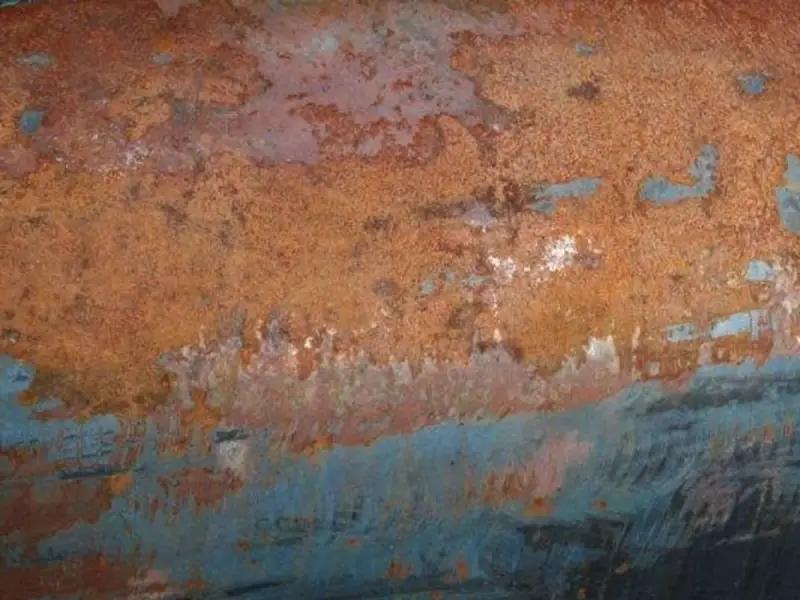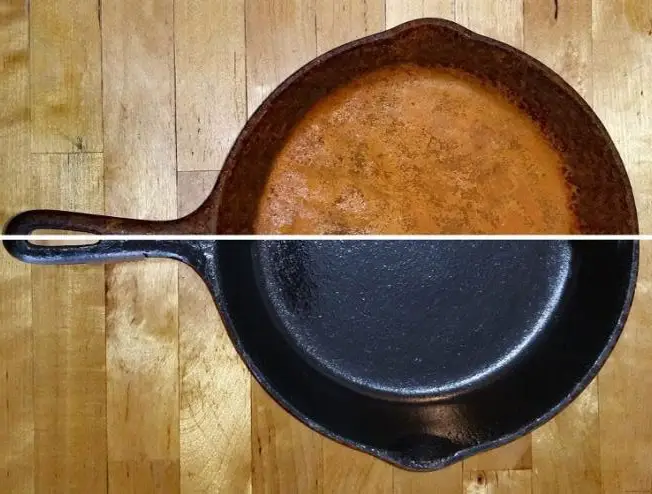Metal rusting is a natural process that occurs when iron or its alloys such as steel are exposed to moisture and air. While rusting is generally seen as undesirable, some people actually want to make metal rust faster for various reasons, such as for artistic purposes, to create a unique vintage look, or for the production of certain products.
To make metal rust faster, there are several methods that you can use, including saltwater corrosion, vinegar corrosion, and hydrogen peroxide and baking soda corrosion. The most common method is saltwater corrosion, which involves soaking the metal in saltwater and exposing it to air and moisture. The salt in the water speeds up the rusting process by acting as a catalyst, allowing the iron to react more quickly with the oxygen and moisture in the air.
Another way to make metal rust faster is by using vinegar, which is an acidic solution that can break down the iron in the metal and cause it to rust more quickly. To use this method, simply soak the metal in vinegar for several hours or overnight and then expose it to air and moisture. You can also add salt to the vinegar solution to further speed up the rusting process. Alternatively, you can mix hydrogen peroxide and baking soda to create a solution that can make metal rust quickly. The combination of the two chemicals creates an oxygen-rich environment that can cause the metal to rust faster.
How To Make Metal Rust Fast Overview
Firstly, you can use saltwater corrosion. To do this, all you need is salt, water, and the metal you want to rust. Simply mix the salt and water together to create a solution, then soak your metal in it for a few hours. This method is great because the salt acts as a catalyst, speeding up the rusting process. Just be sure to take the metal out of the solution once you’re happy with the level of rust, as you don’t want to damage it!
Next, we have vinegar corrosion. This method is just as easy as the saltwater corrosion, but it uses vinegar instead of saltwater. Soak your metal in vinegar for several hours or overnight, then expose it to air and moisture. This method is perfect for those who don’t want to use salt, as vinegar is a great alternative.
Finally, there’s hydrogen peroxide and baking soda corrosion. This method is a little bit different, as it creates an oxygen-rich environment that helps the metal rust faster. Mix hydrogen peroxide and baking soda together, then soak your metal in the solution. This method is a little bit messier than the other two, but the results are stunning!
How To Make Metal Rust Fast – Methods in Comparison
- Saltwater Corrosion: This method involves mixing salt and water together to create a solution and soaking the metal in the solution for a few hours. The salt acts as a catalyst, speeding up the rusting process. To use this method, you’ll need:
- Salt
- Water
- Metal
- Vinegar Corrosion: This method involves soaking the metal in vinegar for several hours or overnight, then exposing it to air and moisture. The acid in the vinegar breaks down the iron in the metal, causing it to rust faster. To use this method, you’ll need:
- Vinegar
- Metal
- Hydrogen Peroxide and Baking Soda Corrosion: This method involves mixing hydrogen peroxide and baking soda together to create a solution, then soaking the metal in the solution. The combination of the two chemicals creates an oxygen-rich environment that helps the metal rust faster. To use this method, you’ll need:
- Hydrogen Peroxide
- Baking Soda
- Metal
| Method | Ingredients | Pros | Cons |
|---|---|---|---|
| Saltwater Corrosion | Salt, Water, Metal | Easy to use, Fast Results | Can damage metal if left in solution too long |
| Vinegar Corrosion | Vinegar, Metal | Easy to use, No salt | May take longer to see results |
| Hydrogen Peroxide & Baking Soda Corrosion | Hydrogen Peroxide, Baking Soda, Metal | Fast results, Unique process | Messy, Can be harmful if not handled properly |

Equipment for Faster Rusting of Metal
| Equipment | Purpose |
|---|---|
| Metal | The metal that you want to rust |
| Container | To hold the solution or vinegar |
| Salt | For the saltwater corrosion method |
| Vinegar | For the vinegar corrosion method |
| Hydrogen Peroxide | For the hydrogen peroxide and baking soda corrosion method |
| Baking Soda | For the hydrogen peroxide and baking soda corrosion method |
| Gloves | To protect your hands from the chemicals |
| Face Mask | To protect your face from the fumes (optional, but recommended) |
Step By Step Instruction On How To Make Metal Rust Fast
- Gather the materials: You’ll need metal, salt, water, and a container to hold the solution.
- Mix the salt and water: In the container, mix together equal parts of salt and water. Stir until the salt is fully dissolved.
- Soak the metal: Place the metal in the saltwater solution and let it soak for several hours. The longer it soaks, the faster it will rust.
- Check the metal: After a few hours, remove the metal from the solution and check its progress. If you’re happy with the level of rust, proceed to the next step. If not, put it back in the solution and let it soak for a little longer.
- Rinse the metal: Once you’re happy with the level of rust, rinse the metal thoroughly with water to remove any remaining salt.
- Dry the metal: Let the metal air dry or wipe it down with a clean cloth to remove any excess moisture.
- Finish: If desired, you can apply a clear coat or sealant to protect the rust finish.
And that’s it! You now have a beautifully rusted piece of metal. Repeat the process for additional pieces, or try the vinegar corrosion or hydrogen peroxide and baking soda corrosion methods for different results. Have fun and happy rusting!

F.A.Q.
What is the best method for making metal rust fast?
The best method depends on your personal preferences and the type of metal you’re using. The saltwater corrosion method is quick and easy, but can damage the metal if left in the solution too long. The vinegar corrosion method is slower, but won’t damage the metal. The hydrogen peroxide and baking soda corrosion method is unique, but can be messy and hazardous to handle. Choose the method that works best for you and your project.
Can I use table salt for the saltwater corrosion method?
Yes, you can use table salt for the saltwater corrosion method. In fact, this is the most common type of salt used for rusting metal.
Can I use any type of vinegar for the vinegar corrosion method?
Yes, you can use any type of vinegar for the vinegar corrosion method. White vinegar is the most common type of vinegar used, but you can also use apple cider vinegar, balsamic vinegar, or any other type of vinegar that you have on hand.
Can I use regular hydrogen peroxide for the hydrogen peroxide and baking soda corrosion method?
Yes, you can use regular hydrogen peroxide for the hydrogen peroxide and baking soda corrosion method. The concentration of the hydrogen peroxide will affect the speed of the rusting process, so you may need to experiment to find the right concentration for your project.
How long does it take for metal to rust using these methods?
The time it takes for metal to rust using these methods will vary depending on the metal, the method, and the conditions. On average, the saltwater corrosion method will take a few hours to several hours, the vinegar corrosion method will take several hours to overnight, and the hydrogen peroxide and baking soda corrosion method will take anywhere from a few hours to several days.
Can I control the amount of rust that forms on the metal?
Yes, you can control the amount of rust that forms on the metal by controlling the amount of time the metal is in the solution or the vinegar, and by adjusting the concentration of the solution or vinegar. Experiment to find the right combination for your project.
Is it safe to handle the chemicals used in these methods?
It’s important to handle the chemicals used in these methods with caution, as they can be harmful if not handled properly. Always wear gloves and a face mask when working with the chemicals, and follow the manufacturer’s instructions carefully.



Leave a Reply